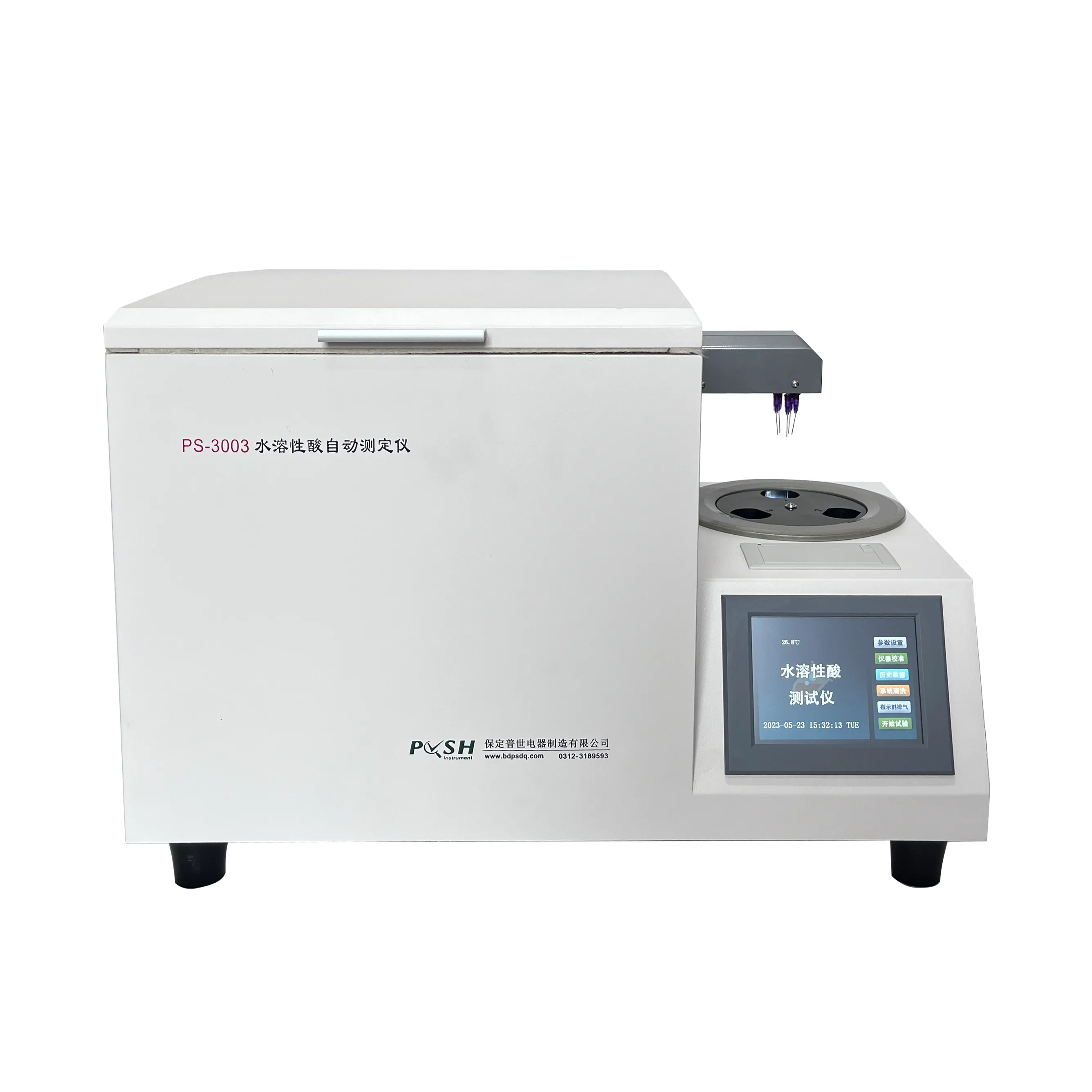 English
English


Portable Device for Measuring Oil Acidity Levels in Cooking and Industrial Applications
Understanding Oil Acidity Tester Importance and Applications
Oil acidity is a critical parameter in the quality assessment of various oils, especially edible oils and lubricants. The level of acidity in oil directly correlates to its freshness, stability, and suitability for consumption or industrial use. An oil acidity tester is a vital tool used to measure the acidity level in oils, playing an essential role in ensuring quality control across multiple industries.
The Science Behind Oil Acidity
Oil acidity primarily refers to the concentration of free fatty acids present in the oil. As oils age, especially when exposed to heat and light, they undergo oxidation and hydrolysis, leading to the formation of free fatty acids. These acids can negatively affect the flavor, nutritional value, and safety of edible oils, while in industrial oils, they can reduce lubrication properties and increase corrosion risk.
The measurement of oil acidity is usually expressed in terms of percentage (%), indicating how much of the oil is made up of free fatty acids. The most commonly used method for determining acidity is through titration, where a base is added to neutralize the acids in the oil, allowing for accurate quantification.
Importance of Oil Acidity Testing
1. Quality Control In the food industry, monitoring oil acidity is crucial to ensure that oils remain safe and palatable for consumers. High acidity levels indicate rancidity, which can result in off-flavors and odors, leading to product rejection. Regular testing helps manufacturers maintain high-quality standards.
2. Shelf Life Determination For both edible and industrial oils, knowing the acidity level can provide insights into the shelf life of the product. Oils with high acidity are more likely to spoil quickly, making it essential for producers to manage inventory wisely and reduce waste.
oil acidity tester

3. Regulatory Compliance Various regulations govern the allowable acidity levels in edible oils. Conducting regular acidity testing helps manufacturers comply with these regulations, avoiding legal issues and potential financial penalties.
4. Preventing Equipment Damage In the case of industrial lubricants, high acidity can lead to corrosion of machinery and components. Regular testing can help identify issues before they lead to equipment failure, saving companies significant repair costs and downtimes.
Applications of Oil Acidity Testers
Oil acidity testers have diverse applications across different sectors
- Food Industry Manufacturers of cooking oils, margarine, and other fat-based products rely on oil acidity testers to monitor product freshness and ensure consumer safety. - Automotive and Machinery Industries that use lubricants depend on acidity testing to verify that oils maintain their protective properties, ensuring the longevity of engines and equipment.
- Research and Development In laboratories, acidity testing plays a vital role in the development of new oil formulations and the assessment of oil stability under various conditions.
Conclusion
In conclusion, oil acidity testers are indispensable tools that contribute significantly to the quality and safety of both edible and industrial oils. By providing accurate measurements of acidity, these testers help industries maintain high standards, comply with regulations, and prevent potential damages caused by rancidity or corrosion. As the demand for high-quality oils continues to grow, investing in reliable oil acidity testing methods will remain a priority for producers and manufacturers alike. This ensures that consumers receive products that not only meet safety standards but also excel in quality and performance.
-
Differences between open cup flash point tester and closed cup flash point testerNewsOct.31,2024
-
The Reliable Load Tap ChangerNewsOct.23,2024
-
The Essential Guide to Hipot TestersNewsOct.23,2024
-
The Digital Insulation TesterNewsOct.23,2024
-
The Best Earth Loop Impedance Tester for SaleNewsOct.23,2024
-
Tan Delta Tester--The Essential Tool for Electrical Insulation TestingNewsOct.23,2024





